This may be the most uncomfortable divorce record in decades
Missy Higgins has never shied away from the introspective, but it’s another thing entirely to be let in on conversations with her children and details about her ex.

Album reviews for week of September 6 2024:
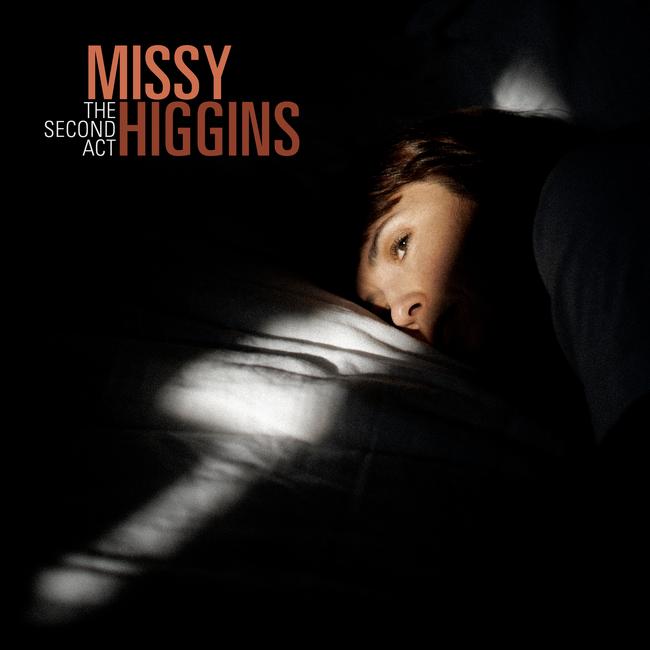
POP/FOLK
The Second Act
Missy Higgins
EMI Music Australia
“There is a crack in everything,” Leonard Cohen famously mused on his song Anthem. “That’s how the light gets in.” It’s a line that, like many of Cohen, has been pored over and interpreted in myriad ways. Missy Higgins, however, might be the first to bring it into a literal rumination: on Craters, a track from her sixth album The Second Act, the Melbourne-based singer-songwriter parallels the literal breaks in her household with the fragmenting of her personal life. There is a crack in everything at the Higgins residence – including the curtains, which lets the light in on her face on the album’s cover while the rest of the room remains shrouded in darkness. Anyone who has seen Higgins perform in the past year or so will know the details, but for those unfamiliar: Higgins has divorced from her partner, with whom she had two children and for whom she professed her love on 2018’s far-more-upbeat Solastalgia. Though they were not a power couple, or even a pairing that received any parasocial attachments that can often come with someone of Higgins’s status, she has nonetheless decided the best way forward creatively is to publicly exorcise the demons that have come with the end of this marriage. The result is the rawest Missy Higgins album to date, both with regards to its extremely personal subject matter and its pared-back and primarily solo piano arrangements.
There are brief moments of musical expansion: A Complicated Truth offers some cooing background vocals and sombre horns, while The In-Between features a drum pattern played so quietly you’d think it was recorded with a baby sleeping in the next room over. For the most part, however, Higgins is front and centre; a constant close-quarters presence. This, of course, has both its good and bad points. On the plus side, her vocals have never been stronger; with 20 years’ experience, she has properly refined the dynamics of her voice to the point of knowing exactly when to draw back and when to shoot for a striking high note. The hyperfocus of the album, however, sometimes reaches a level of discomfort on par with Marvin Gaye’s infamous 1978 divorce record Here, My Dear. Higgins has never shied away from the introspective, but it’s another thing entirely to be let in on conversations with her children and details about her former partner. It feels like borderline eavesdropping – as if these were tales meant for Close Friends only on her Instagram stories, and not her entire followers list. Still, even if you feel like you’re intruding at Higgins’s home on The Second Act, you can still appreciate the light getting in on her seasoned songwriting craft.
David James Young
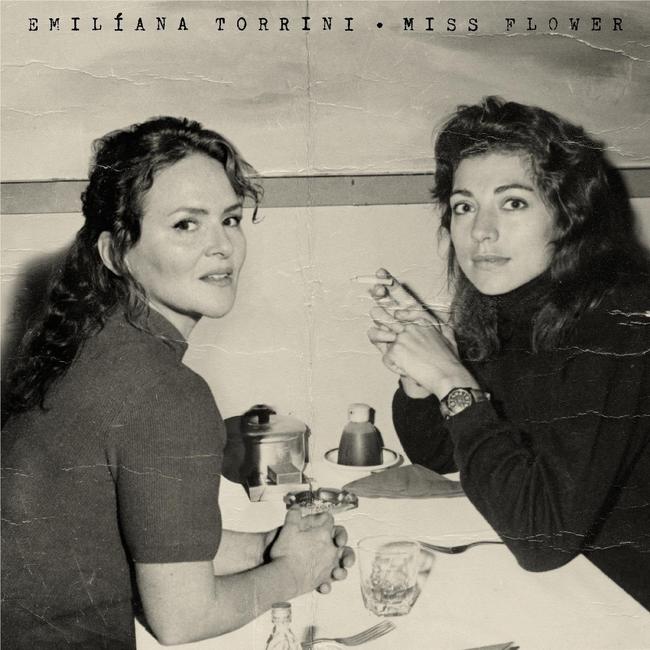
FOLKTRONICA
Miss Flower
Emiliana Torrini
Groenland
Emiliana Torrini: slightly difficult on the tongue, but always easy on the ears. The Icelandic singer-songwriter was a 2000s indie-folk darling, soundtracking twee meet-cutes with the fluttering Heartstopper and the onomatopoeic Jungle Drum. On her first solo album since 2013, Torrini explores the life and times of the titular Miss Flower: a friend’s late mother, with whom she strongly bonded, uncovering archival anecdotes, letters and poems after her 2019 passing. The goal, clearly, is to extract the extraordinary from a seemingly-ordinary everywoman. The ambition therein is commendable, and there are certainly moments where Torrini’s obsession seems justified. The Golden Thread is a stirring ballad, detailing taboo queer romance from a bygone era. Black Lion Lane, meanwhile, recalls sunny salad days with bright guitars and Torrini’s distinctive cooing vocals. Too often, however, the downtempo electronic arrangements flatline any higher-stakes storytelling. A greater sense of dynamics, and some stronger variations on a theme, may well have justified Torrini’s conviction about this woman’s life to listeners.
David James Young
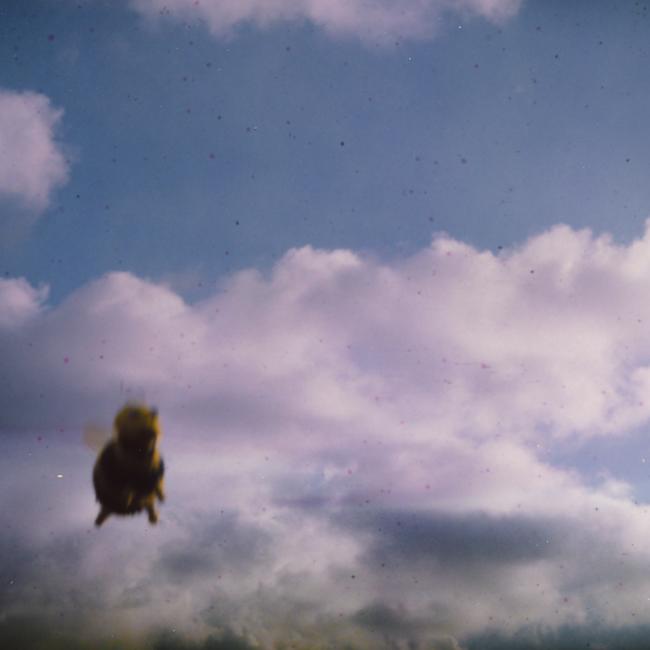
PSYCHEDELIC ROCK
Stung!
Pond
EMI Music Australia
Sometimes you have to feel for Pond. Had its career not collided with Melbourne’s King Gizzard and the Lizard Wizard, it would have good grounds to lay claim to the title of Australia’s most prolific rockers. With its 10th album in 15 years, the Perth psychedelic maestros issue another collection of songs to sate the Tame Impala fans who couldn’t stomach Currents. Led by an emotive performance from mastermind Nick Allbrook, Stung! doesn’t rewrite the Pond rule book in the same way past masterworks Man It Feels Like Space Again and Hobo Rocket did; rather, the fuzzy, soulful and blissfully Floydian sounds explored on Tasmania and 9 find much fuller expressions here. While most of the record has a more melodic, reflective bent, Black Lung and Boys Don’t Crash turn the guitars up and show Pond still has the will to rock. Slo Mo, meanwhile, is driven by a killer groove that sounds like an off-cut from Stevie Wonder’s demo tapes. Pond is at its best when indulging in proggy epics, and Edge of the World Pt. 3 scratches that itch here. In sum: a fine way for the band to bring up double digits.
Alasdair Belling
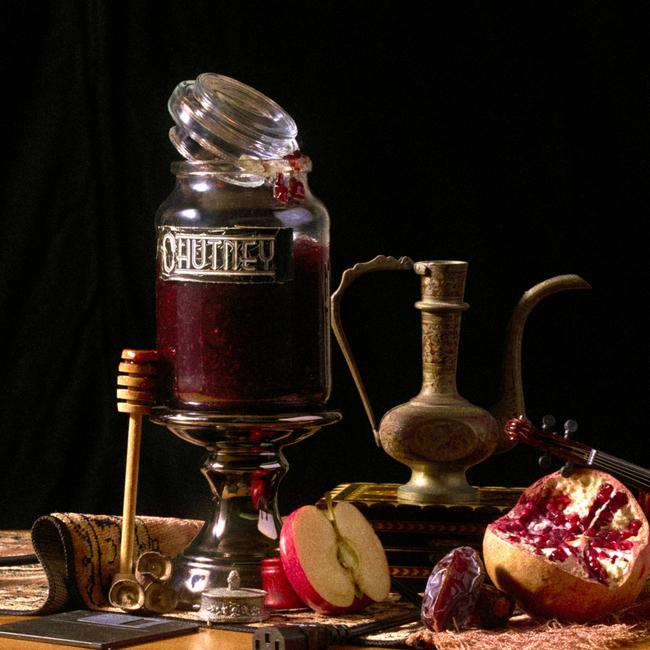
JAZZ
Ajar
Chutney
Independent
The resilient genre of klezmer was derived from the folk music of Jewish Eastern Europe, and dates back to the 16th century; its primary elements are dance tunes, ritual melodies and virtuosic improvisations played at weddings and other social functions. Chutney’s extraordinary album Ajar captures beautifully the essentials of the genre, primarily high spirits and passionate feelings. Chutney is an outstanding sextet including Ben Adler (violin, keyboards), Paul Khodor (piano, keyboards, tuba), Ralph Marshall (electric bass, upright bass, Moog, keyboards), Yiss Mill (percussion), Cameron Reid (drums) and Ben Samuels (clarinets & saxophone). Most sing background vocals, and double on percussion. There are three guest singers: Doron Chester, Ilan Kidron and Sarit Michael. Its 13 tracks include four traditional tunes superbly arranged, plus six originals. What impressed me most was how brilliantly the band has “klezmerised” the works of composers such as Nino Rota, Duke Ellington and Beethoven. There are many highlights, but the closing track — a marvellous arrangement of that memorable song from Fiddler on the Roof, To Life, sung by Doron Chester — is remarkable.
Eric Myers
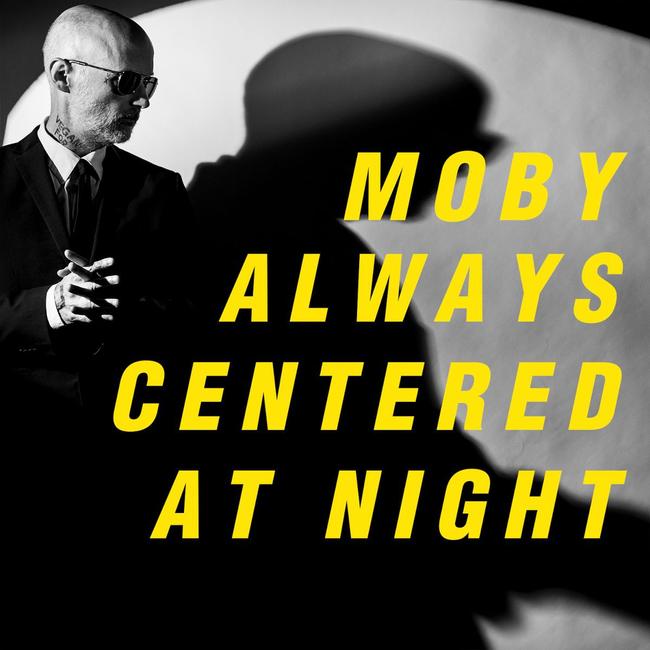
ELECTRONIC
Always Centered At Night
Moby
Always Centered At Night/Mute Records
Amid his documentary-making and book writing, Moby’s musical output has remained prolific, if inconsistent, over the years. A number of his 16 albums since 1999’s seminal Play have proven so-so, but the New Yorker’s 22nd deserves kudos. It’s a grab-bag of moods, tempos and voices, bound together uneasily but effectively by adventurous production and a confidence only a decades-long career can instil. Collaboration has long been Moby’s strength, and here he’s stacked the credits with a diverse group that enhances the genre-jumping feel of the album. From the mashed-up electronica of Medusa – a standout with its drum and bass stylings – to the delicate, unrushed soul of We’re Going Wrong, he seems unbothered by cohesion, even nodding to Latin-house on the excellent Feelings Come Undone. Dark Days is moodily propelled by soul-jazz singer Lady Blackbird, while Where is Your Pride ups the tempo, as the late dub poet Benjamin Zephaniah’s vocal melds with stuttering beats and an urgent synth. Transit channels the best of Play with its atmospheric vocal by Sudanese singer Gaidaa, and there’s the irony: as his 25th anniversary tour of that album approaches, this set shows that Moby remains firmly outside nostalgia act territory.
Tim McNamara
Album reviews for week of August 30 2024:
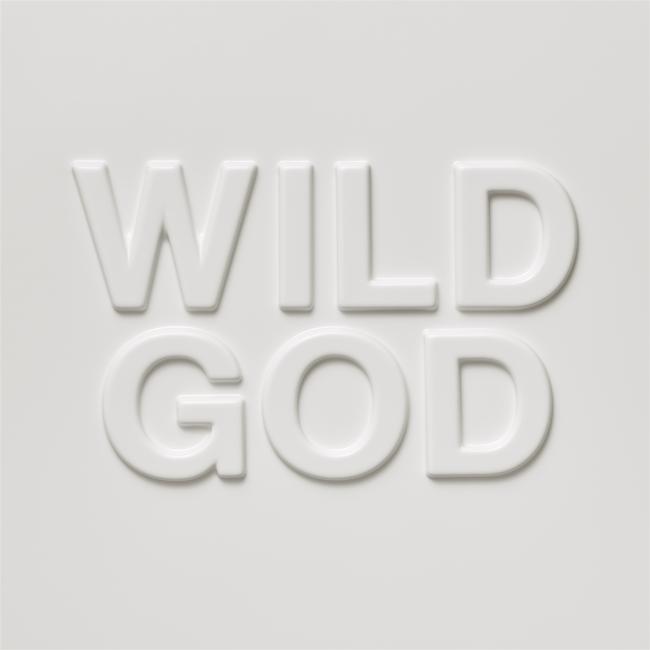
ROCK
Wild God
Nick Cave & The Bad Seeds
PIAS
Nick Cave has described Song of the Lake as a mystery yet to reveal itself to him. Its place as the opening to Wild God, his 18th album with the Bad Seeds, nonetheless sets it as a doorway to the song cycle that follows. In interviews Cave has referred to Wild God as “religious music” and a document of his “conversion”: joyful, albeit uncertain. Song of the Lake has Cave on the shore watching a woman bathe, wondering whether to enter and “dissolve” or stay where he is and “evaporate”. It echoes Arthurian legend, the Lady of the Lake who gives the boy-prince Excalibur and later carries the dead king to Avalon: an intimate picture of Cave and his wife swimming interwoven with neo-Christian mythology. The deaths of his two sons — Arthur in 2015, and Jethro in 2022 — have dominated Cave’s art, intensifying a gearshift already evolving on Push the Sky Away (2013) out of soundtracks he’d been working on with collaborator Warren Ellis. The cinematic and ethereal became radically desperate on Skeleton Tree (2016); epically luminous on Ghosteen (2019), a requiem mass for Arthur. Credited to the Bad Seeds, Cave’s band were backgrounded as Ellis’s synth and loops became the dominant soundscape for lyrics mutating into prose poetry. Recorded during Covid lockdown, Carnage (2021) was branded to the Cave-Ellis partnership, the Bad Seeds nowhere to be seen. But after three great “band” albums their partnership seemed to be flagging, even if Cave was moving beyond grief and back into the world lyrically. In a career of regeneration, was there anything left? Everyone was yearning for the Bad Seeds’ return, but would they really be unleashed?
Wild God stuns with the answer “yes”, its title track marked by a repressed transistor quality that takes off on a wave of cool energy distinguished by drummer Thomas Wydler’s elastic shuffle driving upwards with a bursting choir. Produced by Cave and Ellis, they’ve invited David Fridmann to mix, his taste for compression — making soft sounds loud, and the loud soft, on albums by The Flaming Lips and Mogwai — giving Wild God its surging emotional quality. The Bad Seeds’ muscular strengths and the choral and string arrangements are crushed together into rowdily ecstatic moments heightened by repetitive phrasing from Cave that invites comparisons with Van Morrison’s incantational questing for the divine. It’s a record so melodic and clean-sounding it practically shines; the nearest this Melbourne-born group has ever come to making pop music. As this era’s rock ‘n’ roll John Donne, Cave has found a perfect balance between his personal suffering and religious inclinations while maintaining an experimental and accessible musical ambience. Direct tributes to his wife Susie Cave on Final Rescue Attempt and his first partner Anita Lane on the exquisite O Wow O Wow (How Wonderful She Is) — “I can confirm that God actually exists” (harking back wryly to Into My Arms) — speaks to something that underlines Song of the Lake and all of Wild God. A faith not just in Jesus, but in a feminine spirit and its tender facility to inspire a renewing love.
Mark Mordue

INDIE ROCK
Rebuild Repeat
Hockey Dad
Farmer & The Owl
Hockey Dad made its name with naggingly catchy garage rock steeped in long days spent surfing in the Wollongong suburb of Windang. As signalled by the title, this fourth album gives that formula a refresh, adding wintry introspective twinges (Seething, Unhinged) and some lighter, almost jazzy drumming (Backup Plan). The band taps outside co-writers on opener Base Camp, though its vocal harmonies and cruisy refrain of “I want to get higher” aren’t exactly ditching the formula. While this feels like a transition record as the core duo of singer/guitarist Zach Stephenson and drummer Billy Fleming rethink their creative parameters, there are easy wins in the punchy propulsion of Wreck & Ruin and the dreamy reverb of Road Signs. The closing Dancing on the Other Hand even abandons scuffed guitar altogether to hinge quietly on piano, ephemeral strings and soft drumming while Stephenson hits some poignant vocal notes. It may be more downbeat than the sunny riffage of previous outings, but there’s a lot of potential here for further unpacking.
Doug Wallen
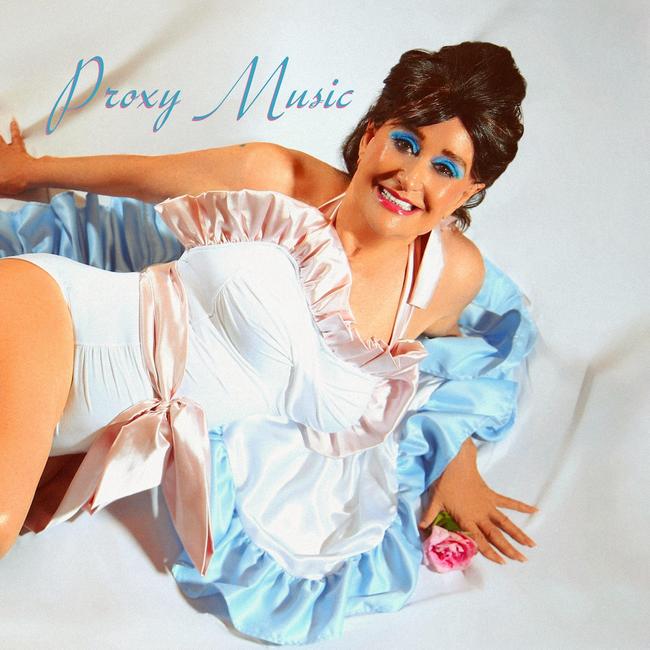
FOLK/POP
Proxy Music
Linda Thompson
StorySound Records
Veteran British folk/popster Linda Thompson’s first release in 11 years is patently unique, and not just because the saucy covert artwork is a pastiche of Roxy Music’s debut LP. Suffering from a vocal condition has deterred Thompson from singing any of the 11 new songs she wrote or co-composed; instead, members of her multi-talented family and well-known musician pals deliver her songs by proxy. The result is something of a patchwork quilt, bookended by the set’s strongest works in jaunty opener The Solitary Traveller and choral closer Those Damn Roches, featuring respectively Thompson’s daughter (Kami) and son (Teddy) “bound together in blood and song”. The Wainwright siblings shine in their respective tracks, Martha sounding uncannily like her late ma Kate McGarrigle on All These Things; Rufus crooning a la Al Bowlly on Darling This Will Never Do. In between, The Proclaimers harmonise about a Bonny Lass in their Scottish brogue. The Unthanks are similarly true to form in the dour Three Shaky Ships, co-penned by Linda and her former partner in rhyme, Richard.
Tony Hillier

POP
The Secret of Us
Gracie Abrams
Interscope
Gracie Abrams’s urgent and intimate songwriting has won her many fans since she emerged in 2019 with the fragile single Mean It. Now 24, she has been fairly prolific in the years since: debut EP Minor landed in 2020, followed by This Is What It Feels Like in 2021, and then her debut album Good Riddance in early 2023. The Secret of Us arrives just over a year later, but plenty has happened in the interim, most notably with Abrams working as a support act on Taylor Swift’s record-breaking Eras tour. The album sees the songwriter team up again with friend and close collaborator Aaron Dessner (The National), and he gives the record the soft, watercolour palette that defines his production work. Abrams’s songwriting is sharp and refined, and tracks like Let It Happen, Risk, and Us show that she’s a keen student of Swift (who features on Us). Other songs, like I Knew It, I Know You, give kudos to the icy alt-country of Phoebe Bridgers. The best moments here (Let It Happen, Close To You) are when Abrams lets the melodies stretch out and rush ahead instead of shrinking them down. There are some lovely moments, but by the end you find yourself wishing that Abrams would take some bigger swings.
Jules LeFevre
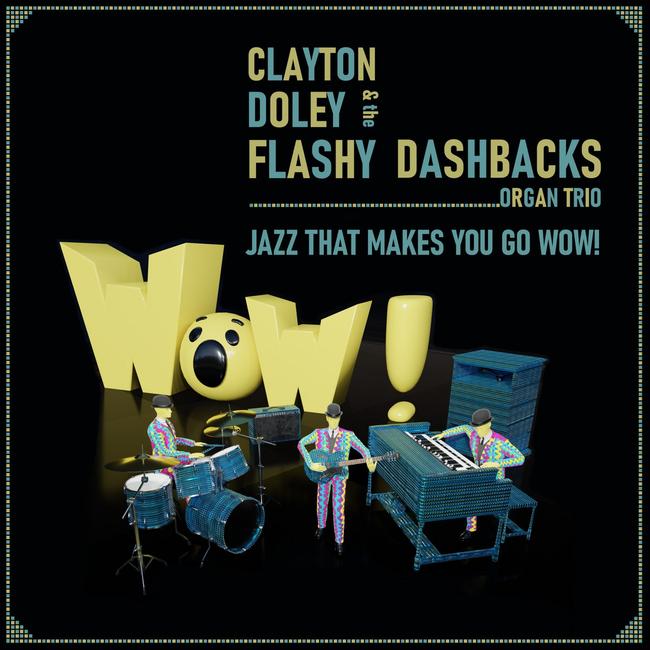
JAZZ
Jazz That Makes You Go Wow!
Clayton Doley
Interface Blue
I’m aware of two organ trio albums featuring the durable collaboration between Hammond B3 virtuoso Clayton Doley and guitarist Tim Rollinson: Undertones in December 2022 and Fun Times Ahead in April 2023. In both of those instances, Doley fulfilled the role of sideman. This new album, with Doley as leader, is a companion-piece, built once again on the considerable strengths that the B3 organ brings to small group jazz, including the groovy sound of the keyboard bass that Doley provides with his left-hand on the lower manual of the console. Seven compositions are played here, six by Doley, who in recent years has become known on the rock and pop circuit by backing artists such as Jimmy Barnes and his daughter, Elly-May. I was worried by the relatively big sound of Doley’s bass lines compared to the extremely hip sound balance of the two aforementioned albums. This is a minor quibble, however, given that otherwise this is a faultless exhibition of the art of the organ trio by Doley and Rollinson plus new recruit, the outstanding drummer Daniel Melillian Zavata, recently arrived from Chile. This is optimistic and uncomplicated music, beautifully played; a brilliant example of feel-good jazz.
Eric Myers



To join the conversation, please log in. Don't have an account? Register
Join the conversation, you are commenting as Logout